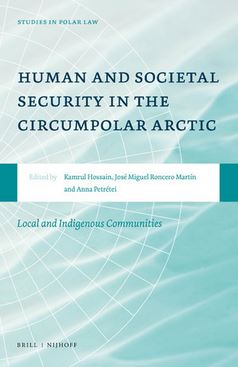‘Solutions to common human security issues must be contextual at the local level, and address the unique concerns of diverse identities within communities,’ state researchers in the final report of the HuSArctic project. The main objective of the four-year project in 2015–2018 is to address human challenges of the Arctic population and to find tools to improve human security within Barents region. The project is funded by the Academy of Finland and hosted by the Northern Institute for Environmental and Minority Law, which is part of the Arctic Centre at the University of Lapland.
The concept of human security replaces the traditional focus on the state as referent object with individuals and their communities. Arctic communities are facing numerous rapid changes that will affect human security. For example, negative impacts resulting from climate change have a disproportionate cost for communities facing the environmental degradation, species loss, exposure and vulnerability to hazards and the risk of disasters, especially in relation to traditional livelihoods. Developing industries in the Arctic including tourism, extractive resources and mining, in combination with digitalization and increasing centralization of governance and services are also challenges for communities.
Researchers state that human security in the Arctic requires the recognition of local environments as the fundamental basis for realizing the human right to a healthy environment, and the collective responsibility to promote sustainability. Policies regarding Arctic engagement should encourage partnership and collaboration with indigenous peoples and local communities that goes beyond consultation and consent, and recognizes the responsibilities of all actors in the Arctic.
Policy-making related to the Arctic needs a new kind of mindset. A re-evaluation of norms across the systemic, community, and individual levels is required in order to achieve sustainability for current and future generations. Basically, development needs to be separated from economic growth. In doing this, indigenous philosophies should also be considered, and these should be incorporated in decision-making. This fundamentally requires an acknowledgement and response to the historical legacy and current impacts of colonization in the Arctic. As such, contemporary awareness of different identities and histories in the Arctic need to be raised, and challenges addressed, through education and community engagement.
The Executive Summary of the final conference of the HuSArctic project held in October 2018 has been published on the project website in English, Finnish, Swedish, Russian, Norwegian, and Northern Sámi:
http://www.husarctic.org/en/publications. You can download the Final Report in English
here.
Book about human and societal security focusing on local and indigenous communities
The final conference of the project also hosted the official launch of the project’s most recent book publication, Human and Societal Security in the Circumpolar Arctic: Local and Indigenous Communities. The book is edited by Kamrul Hossain, Jose Miguel Roncero, and Anna Petrétei. The book presents a comparative and interdisciplinary perspective to which the Arctic is placed as referent, and special attention is paid to the viewpoint of local and indigenous communities.
The book is the first volume in a new series by Brill, Studies in Polar Law. The book is available online via the publisher.

More information:
Project website: www.husarctic.org
Professor Kamrul Hossain
Northern Institute for Environmental and Minority Law
Arctic Centre, University of Lapland
+358 40 484 4281, kamrul.hossain(at)ulapland.fi
Group photo of the HuSArctic final conference: Afroja Khanam
LaY/AK/JW